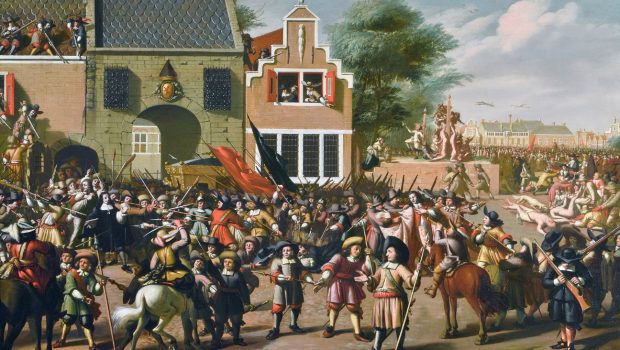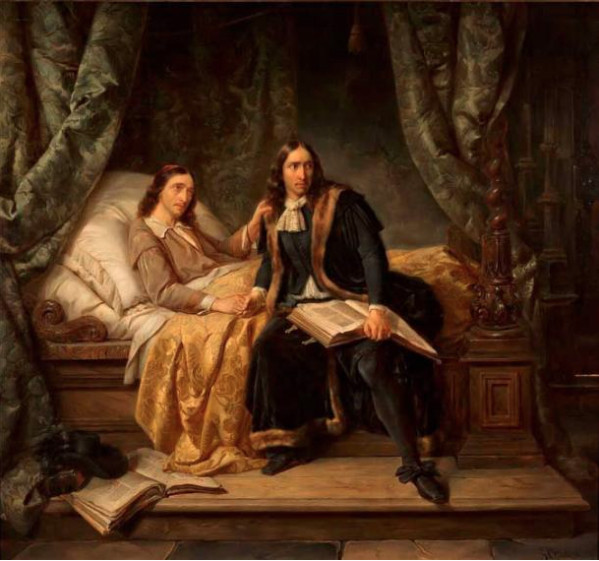
In the mid-seventeenth century, during a period known to history as the Dutch Golden Age, Johan de Witt was considered one of the leading figures.
The Netherlands began to establish itself as a major European power, as its navy allowed it to claim a large share of world trade. Johan de Witt remained Prime Minister for nearly 20 years.
Read also: The red light district of Amsterdam will be completely transformed into a shopping mall
It has gone down in history for one of the most shocking murders and one of the few recorded cases of cannibalism since the 17th century.
An important figure in Dutch politics, Johan de Witt became prime minister in 1653. Some 20 years later, while the Netherlands was at war with England, an angry mob executed him and his brother. After killing them, they cut up their bodies and ate them.
Johan de Witt opposed Orange-Nassau, but the neglect of the Dutch army proved disastrous. In April 1672, France and England declared war on the Dutch Republic, making Johan de Witt a red flag for his countryman.
Johan de Witt: Assassination Attempt, Brutal End
Later, on June 21, there was an assassination attempt against him. He was seriously injured in a knife attack and had to quit after a few weeks. But even this did not satisfy his fanatical enemies.
His political opponents continued to plot against him and arrested his brother and closest ally Cornelis for treason. Despite the torture he was subjected to, Cornelis refused to confess and was sentenced to exile.
Johan de Witt visited his brother in the prison where he was being held before leaving for exile. This day also saw their tragic end. Then they were attacked by members of the Hague militia. After being shot, they were handed over to the angry crowd. Their bodies were dismembered, and there are testimonies that they made fire, roasted their limbs, and ate them.
The remarkable discipline of the mob in spite of the horrendous killing and maiming is admirable. According to modern observers, this perhaps indicates that the attack may have been premeditated rather than a spontaneous act of mob violence.
As a young man, Johan de Witt excelled in academic circles. He studied mathematics and law at the University of Leiden and obtained his doctorate from the University of Angers in 1645. He had four children, three daughters and one son.
The Dutch consider the brutal assassination of a man recorded in history as a highly capable leader as one of the most shameful events in their history. Few are those who know the story of Johan de Witt, in front of the statue that was placed in Rotterdam.

“Hipster-friendly coffee fanatic. Subtly charming bacon advocate. Friend of animals everywhere.”






More Stories
Middle East: Israel and Iran are playing with fire
Greece will not vote in favor of Kosovo's accession to the Council of Europe: gerapitis evident after 48 hours of uproar [video]
Al-Sharq Al-Awsat: Israeli missile attack on Iran, according to ABC